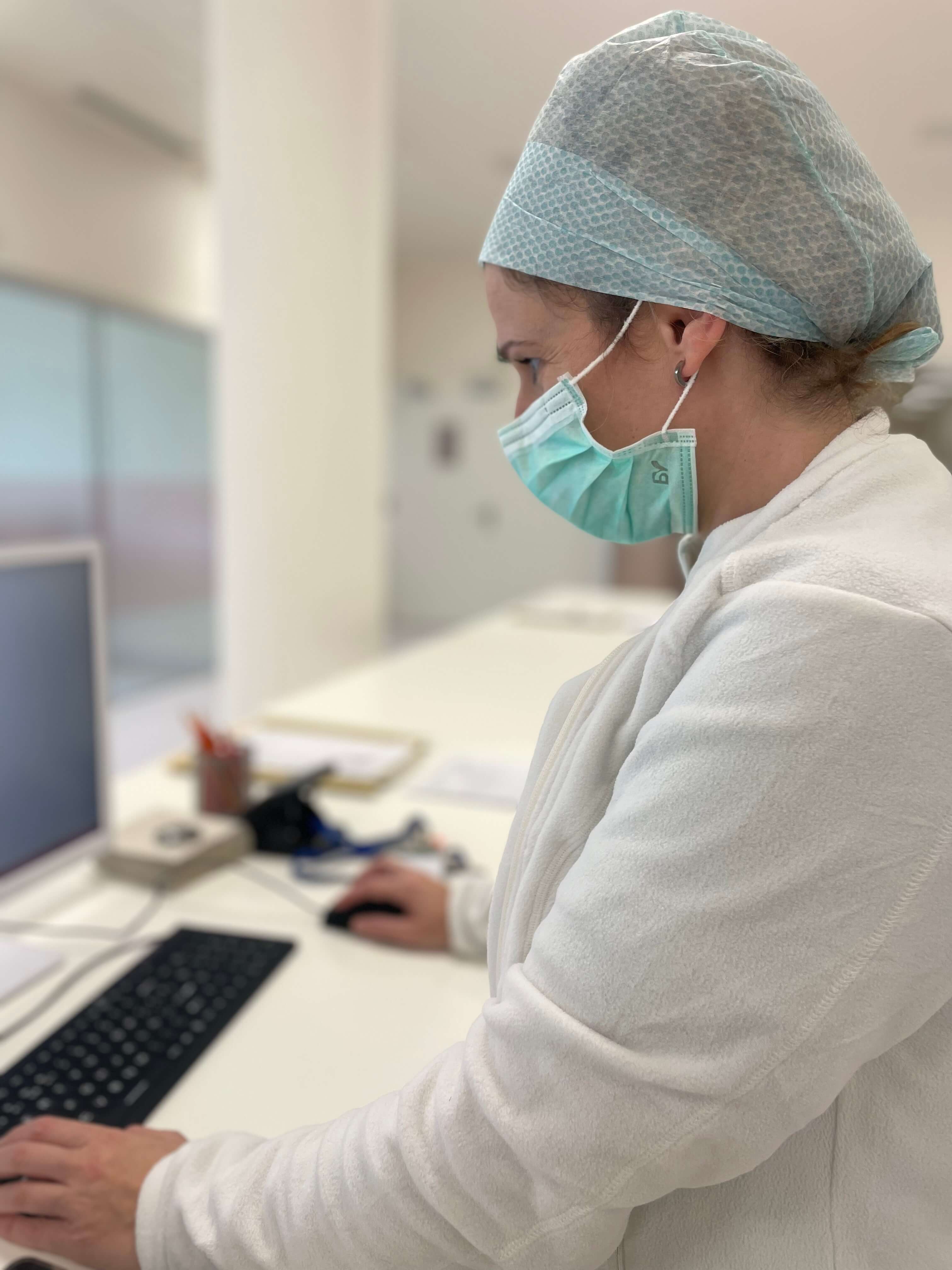Interview with Marly-Ann Spronken, founder Wellness Kliniek
Plastic surgery is a part of medicine that is often in the spotlight, and far from always in a positive sense. Through social media, we hear many stories about the aesthetic improvements that can be achieved, but also the ethical dilemmas that sometimes accompany the industry.
In this article, therefore, we dive into the ethics of plastic surgery and want to know all about the various moral issues and patient rights that affect both patients and plastic surgeons.
So who better to ask than Marly-Ann Spronken;
Is cosmetic surgery ethical or unethical?
Ethics is a branch of philosophy concerned with studying what is right and wrong behaviour. It deals with the issues surrounding morality and the norms and values that determine how people (plastic surgeons and patients) should act. Ethics helps us determine what is right and wrong, both on a personal level and within larger communities or professional groups.
Plastic surgeons' ethics regarding cosmetic surgery focus on carefully weighing the health risks and psychological impact for the patient against the aesthetic benefits of the surgery.
What ethical responsibility does a plastic surgeon have?
A plastic surgeon has an ethical responsibility to ensure that his/her patients are well informed and have realistic expectations about the results, costs and risks of procedures. They must also guard the privacy and confidentiality of patient data and act in the best interests of the patient, putting safety and well-being first.
To what extent should a surgeon respond to the patient's wishes?

Ethics in plastic surgery requires a balance between respecting patient wishes and providing professional and responsible medical advice, especially when extravagant or risky procedures are requested.
A plastic surgeon must take the patient's wishes seriously and discuss them thoroughly, but also offer professional guidance on what is medically and aesthetically justified. It is important that the surgeon provides the patient with realistic expectations about the cost, results and risks and refuses the procedure if the expectations are not feasible, safe or aesthetically extreme.
How do surgeons deal with patients who have unrealistic or extreme expectations?
Surgeons have an ethical duty to set realistic expectations and be transparent about the costs, potential outcomes and risks of surgery. If a surgeon believes that a patient's expectations are unrealistic or that the requested procedure is not in the patient's best interest, they will decide not to perform the surgery.
Is selling or recommending plastic surgery ethical?

Reputable cosmetic clinics, do not work with salesmen, consultants or aesthetic consultants. The surgeon doing the consultation is preferably the one performing the surgery. It an important criterion when assessing the quality of the consultation. Surgeons should ensure that patients are fully informed about all aspects of the procedure, including potential risks. Doctors should set realistic expectations.
At the most renowned European clinics, such as Wellness Kliniek (Belgium and Barcelona), Quironsalud Teknon Medical Center (Barcelona), The Private Clinic (London, UK) and Laclinic Montreux (Switzerland), a no-obligation consultation always takes place (physically or digitally) before the treatment can actually take place. During this consultation, the surgeon explains everything about the procedure, risks and the realistic results to be expected. As a patient, you have the opportunity to ask all your questions during the consultation.
Request a non-binding consultation
Is aesthetic plastic surgery on minors ethical?
Procedures in minors involve additional ethical considerations, such as the mental maturity of the young patient to understand the implications of surgery and assessing the motivation behind the desire for surgery. Parental consent is also necessary.
For the surgeon, it is important to fully understand the purpose of the surgery and to ensure that the surgery is always in the best interest of the patient. Moreover, it is the surgeon's job to create a realistic picture for the patient (and parents) of the expected outcome.
Social pressure, social media and the psychological impact
Increasing social pressure, including on social media, to meet certain beauty standards can also raise ethical issues. It is regularly claimed by critics that plastic surgery contributes to a culture of unrealistic expectations and body image problems. However, this is certainly not always justified and detrimental to clinics and plastic surgeons who do act in the best interests of patients.
Clinics, such as Wellness Kliniek, therefore consider it very important that their surgeons carefully evaluate patients during the intake consultation. Not everyone is eligible for surgery. We consider it crucial that patients have realistic expectations and are psychologically stable prior to surgery. The choice should not be influenced by an outsider, but should be a sincere desire of the person for whom the plastic surgery is intended.
When is plastic surgery reimbursed by the insurer?
An important ethical principle in healthcare is equal access to care for everyone, regardless of their financial situation. Plastic surgery for aesthetic reasons is usually not reimbursed and can be costly, making it difficult for some people to access. This sometimes raises questions about equity and fair distribution of resources.
When is plastic surgery price advertising misleading?
Plastic surgery price advertising is misleading if it hides costs that contribute significantly to the total price of the procedure, such as VAT (often 21%), anaesthetic costs, admission costs, or additional aftercare costs. In addition, advertising is misleading if it creates unrealistic results or offers promises, which can mislead patients about the possible outcomes of the surgery.
Reliable clinics, such as Wellness Kliniek (Belgium and Spain) always offer a full and transparent all-in price, with VAT included, so you never get unexpected costs afterwards. The before and after plastic surgery photo gallery gives you a good and realistic picture of what can be achieved with an aesthetic procedure.
Protecting vulnerable groups
Plastic surgeons and clinics must consider the welfare of vulnerable groups. Think of minors or people with mental illnesses. Ethically, there are questions about performing medical procedures on vulnerable people, unless of course there is a medical necessity. In any case, very careful considerations should always be made.
At Wellness Kliniek, surgeons prefer not to perform procedures on people under 18 years old, and the surgeon always assesses during the initial consultation whether someone is both mentally and physically fit for aesthetic surgery.
Ethics remain a hot topic, says Marly-Ann Spronken
The ethics of plastic surgery will always raise complex and challenging questions. At the better clinics, including Wellness Kliniek, they are very aware of this.
We believe it is important for both plastic surgeons and the clinic itself to take these issues seriously and to strive for ethical practices that put the welfare and rights of the patient first.
As a Wellness Kliniek, we are aware of our leading role in the industry, which is why we constantly work hard to maintain the highest standards of integrity and professionalism at our clinics in Belgium and Spain, Barcelona.
Are you considering plastic surgery yourself? Then feel free to book a no-obligation consultation:
- Marly-Ann Spronken is a leading healthcare entrepreneur, best known for her leadership roles within the Spronken Group, Wellness Kliniek and Medfac Group. She has played a significant role in the development and expansion of Wellness Kliniek, with a focus on delivering high-quality medical care. Her work emphasises providing standards, values and better outcomes in healthcare and particularly aesthetic plastic surgery, this in line with modern ISO quality standards and high standards of patient satisfaction.
- Wellness Kliniek™ a leading private clinic in Belgium and Spain, specialising in plastic aesthetic surgery and cosmetic treatments. Founded in 1996, Wellness Kliniek is one of the largest clinics in Europe with more than 150,000 satisfied patients. The clinic is known for its high standards of patient care and has built a strong reputation in the industry.
















































